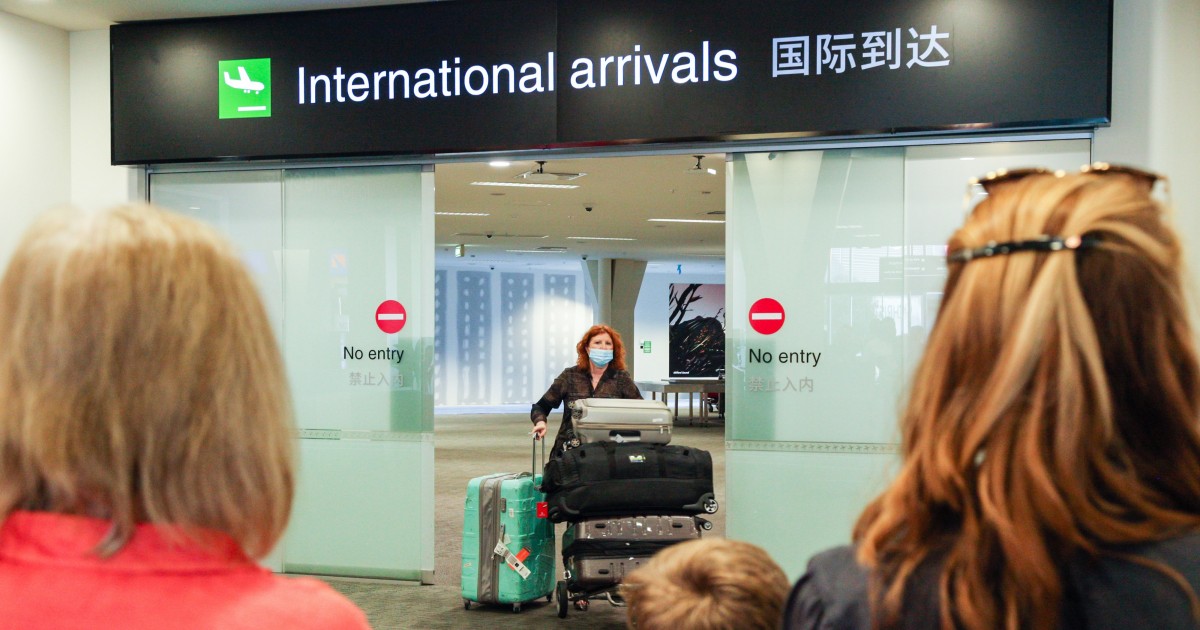
WELLINGTON — New Zealand, which has completely stamped out the coronavirus, plans to cautiously reopen its borders to international travelers early next year, the government said Thursday.
Officials also said they would delay second shots of the Pfizer vaccine in order to speed up first shots to protect more people as the threat of the delta variant grows.
Download the NBC News app for breaking news and politics
New Zealand’s success in erasing the coronavirus has allowed life to return almost to normal. The South Pacific nation of 5 million people has reported just 26 deaths since the pandemic began.
That’s been achieved in part by closing borders to those who aren’t residents or citizens.
But many question whether its feasible for New Zealand to maintain a zero-tolerance approach to the virus once international travel resumes.
Prime Minister Jacinda Ardern said the government planned to follow the advice of experts and maintain the elimination strategy.
“While the pandemic continues to rage overseas, and the virus continues to change and mutate, the best thing we can do is lock in the gains achieved to date while keeping our options open,” she said.
Ardern said the borders would not reopen until after New Zealand’s vaccine rollout was completed at the end of the year. The rollout has been much slower than in most developed nations, although is beginning to accelerate.
Ardern said that from the first quarter of next year, the country would begin allowing travelers to arrive on a carefully managed basis.
Fully vaccinated travelers from low-risk countries would not be required to quarantine, she said. Those arriving from medium-risk countries would need to complete some form of quarantine. And those arriving from high-risk countries, or who were unvaccinated, would need to stay 14 days in a quarantine hotel run by the military, Ardern said.
The government did not provide a ranking of countries by risk, saying it could change quickly.
Ardern also announced it was increasing the standard time scheduled between Pfizer vaccine doses from three weeks to six weeks. She said the initial groups targeted for the vaccine — border workers and older people — had already been fully vaccinated.
“From a population basis, it makes sense to get as many New Zealanders at least partially vaccinated quickly,” Ardern said.
The changes were generally welcomed by business owners, including those in the struggling tourism industry. Before the pandemic, more than 3 million overseas travelers visited New Zealand each year and tourism was among the country’s largest industries.
“It’s important to have a roadmap so all businesses, including tourism operators, can plan ahead and make informed decisions,” said Chris Roberts, the chief executive of Tourism Industry Aotearoa.
Opposition Leader Judith Collins said Ardern’s announcements were a step in the right direction but the government needed to speed up its vaccination program.
About 29 percent of New Zealanders have received one dose of the vaccine and 17 percent are fully vaccinated.
Source: | This article originally belongs to Nbcnews.com










